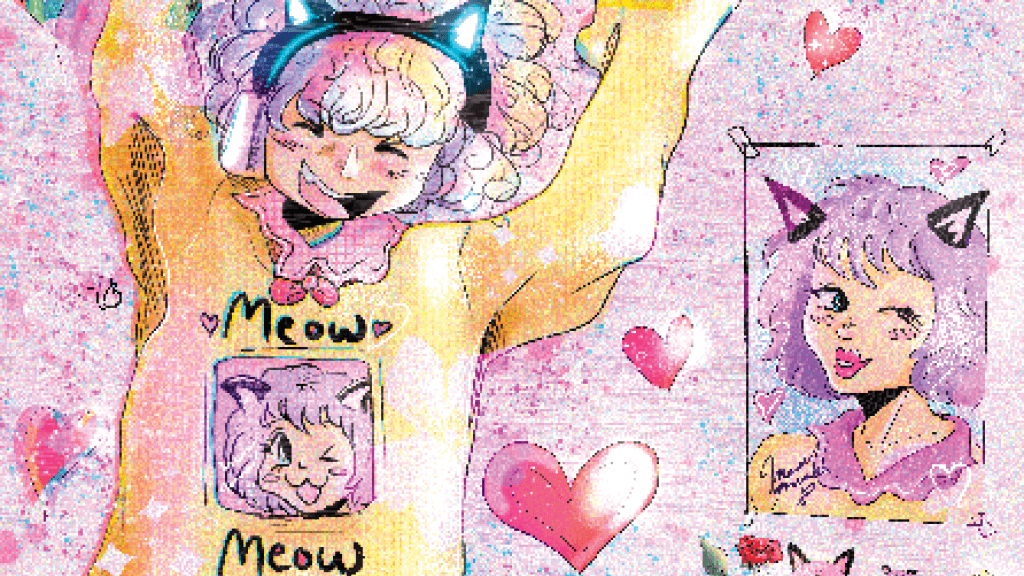A hallmark of mass media, parasocial interactions consist of a person's relationship with a personality or figure they've never actually met or had a conversation with. A celebrity, if you will. They don't know the person in a traditional sense, and the figure in question has no knowledge of the other in the relationship. At the same time, this phenomena has made it's mark on how we interact in a technological age.
When you watch mass media performers, from your favorite news anchor to Youtubers, obsess over your favorite musical artist or actor, you are directly participating in a parasocial relationship.
In Psychology Today, Brant Hilary Brenner wrote about the incompleteness of these one-sided affairs.
"Similar to robotic partners, substitutive relationships with pseudo-personalities meet attachment needs while potentially rewarding insecure attachments,” Brenner explained.
To clarify: many types of attachment do not need to be reciprocal in order to exist.
Saul McLeod , a clinical psychologist, noted this distinction in his article with Simply Psychology. "[Attachment is] a deep and enduring emotional bond between two people in which each seeks closeness and feels more secure when in the presence of the attachment figure,” McLeod wrote.
An Impact on Younger Generations?
These kinds of interactions aren't necessarily bad. However, they can have massive impact on psychological and psychosocial development on young children. They can influence how the child interacts and conforms to societal norms and stereotypes, reinforcing values in still-developing watchers that may be incapable of critical thought.
Parasocial relationships are becoming increasingly common, even more so after the advent of influencer media and online personalities. When the LEGO Group conducted a survey in 2019 to see whether or not children ages 8 to 12 are still as interested in space exploration as in previous years, they found that more kids living in the United States wanted to grow up and become a Youtuber.
Kids today would rather achieve self-validation through fame rather than walk on Mars or explore space.
Examining the Parasocial Relationship
Parasocial relationships are not only commonplace among children. A great example is through the relationship between a viewer and a content creator on Youtube.
The viewer has a one sided attachment to the Youtuber, who is unaware of the viewer’s specific existence. The Youtuber doesn't know, for instance, the you behind the screen. You may watch their content daily and know intimate facts about them, but they do not have that same connection to you. The viewer, on the other hand, doesn’t know anything about said figure outside of the content specially edited for them.
Youtubers can then sponsor their content to profit off of it. While some content creators use the revenue to build their channel and make a living off of the relationship formed with their viewers, others can use the attachment in a more exploitative manner.
Earlier in 2021, popular Youtuber James Charles was under fire for allegations of sexting minors. Kat Tenbarge from Insider wrote that he issued an apology, confirming that he did send sexual Snapchats and direct messages to teens, but under the pretext of not checking their age beforehand.
Many of these minors had come into contact with James Charles through his content on Youtube, highlighting the parasocial nature of his misconduct.
On another note, parasocial relationships isn't just bad in a financial sense, but can seriously affect the mental health of the person with this bond.
“In parasocial relationships, fans may have the delusion that their favorite celebrity figure is their friend. Their feeling of entitlement over the personal details of that person’s life can cause them to become obsessive over gaining their attention,” Katelyn Redfoot from Psych Times explained.
"[Fan's] feeling of entitlement over the personal details of that person’s life can cause them to become obsessive over gaining their attention.”
These toxic parasocial bonds can even turn into something worse: celebrity worship syndrome.
Eminem wrote a song about it, called “Stan.” In the music video, the fan drives his car off of a bridge alongside his pregnant wife because the rapper didn’t respond to his letter. Donna Rockwell, a clinical psychologist, wrote for The Huffington Post in critique of parasocial relationships.
“We can better understand a dynamic that plays out at an unconscious level ... in ways it would be best to become aware,” Rockwell wrote.
"We can better understand a dynamic that plays out at an unconscious level ... in ways it would be best to become aware.”
She described the relationship with the celebrity almost like one we have with a brand or product, albeit more obsessive. There is always a marketing aspect to a parasocial relationship, which commonly hides behind a larger-than-life persona. Rockwell presented a question, in this context:
“[In parasocial relationships], are we choosing opinions and worldviews with at least some degree of personal agency, or are we absorbing messages flooding into our consciousness and embedded in unconscious drives derived from external media sources?”
Perhaps there is a lesson to be learned about the incomplete nature of these kinds of relationships, and the ulterior motives that line them. Should we scrutinize our relationships towards these figures and make more attempts to form complete bonds in our lives? As viewers, we must remain critical that although content creators can bring joy to their fanbase, they are still human. For some humans, unfortunately, their intentions are not always pure.








